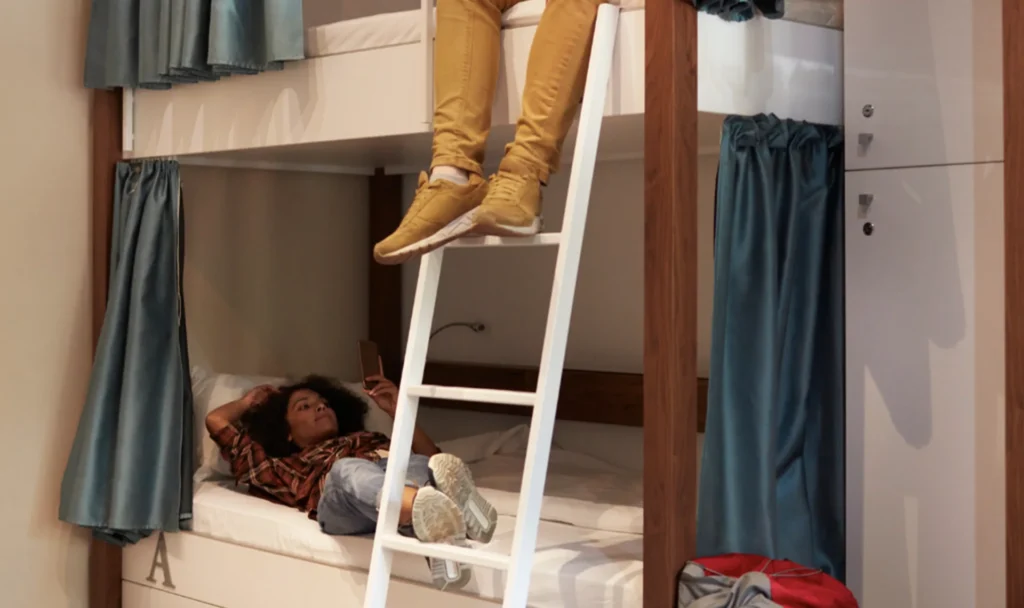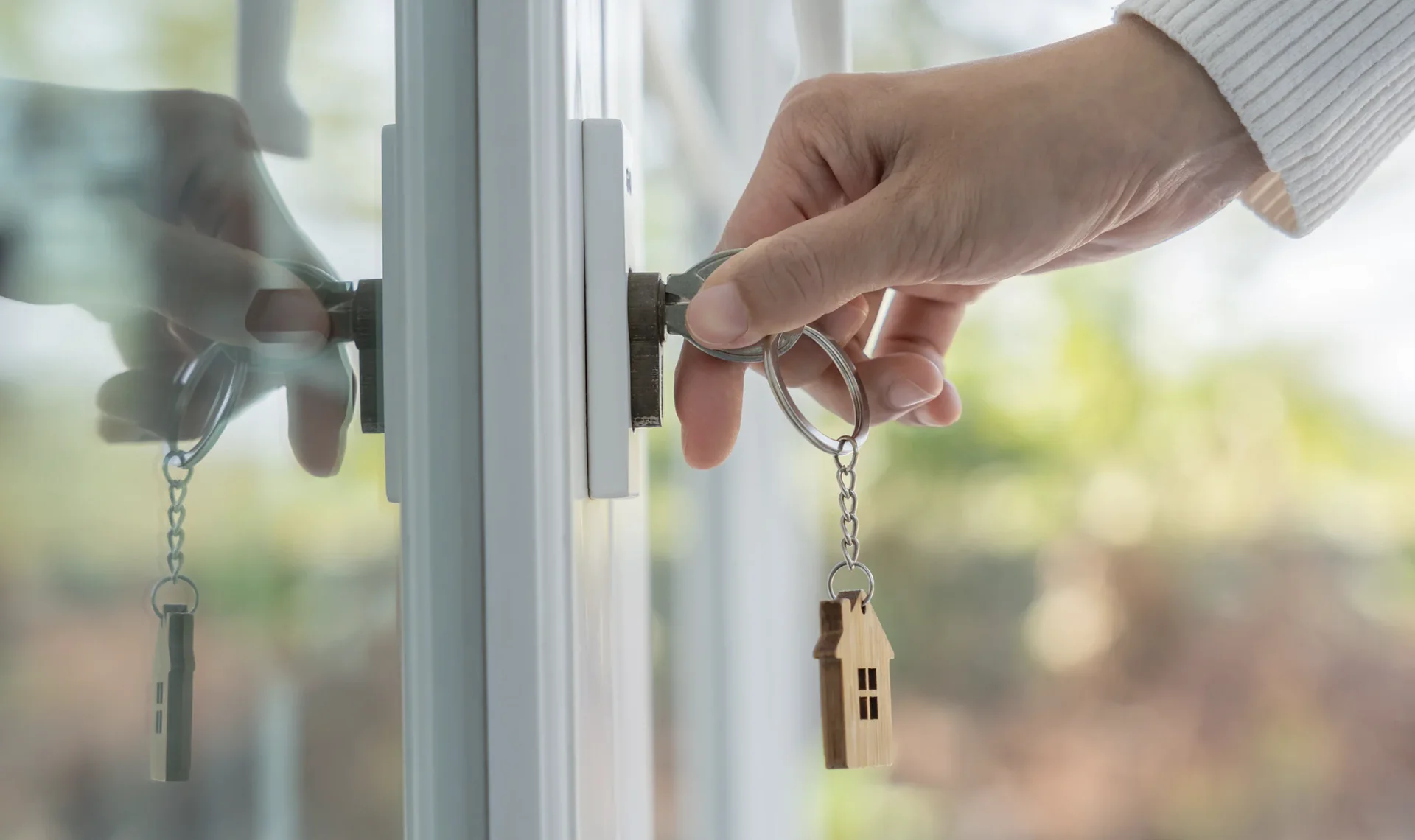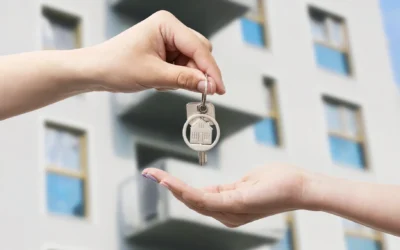Introduction
The rise of vacation rental platforms like Airbnb and Vrbo has transformed how we travel, offering unique stays and personalized experiences. But with these conveniences comes a question that can feel overwhelming for both hosts and guests: who is responsible when an accident occurs at a rental property? Whether it’s a slip-and-fall, a fire, or a structural hazard, the aftermath of such incidents can be physically, emotionally, and financially devastating.
For guests, these accidents can raise concerns about medical bills and lost wages, while hosts may face uncertainty about their legal responsibilities and potential liability. Understanding the nuances of host liability in short-term rentals is crucial for protecting yourself or your loved ones, whether you’re the one injured or the property owner.
At Hurt Aid, we know navigating the legal and emotional challenges of accidents can be daunting. Our mission is to guide you through this journey by connecting you with resources and professionals who can help you make informed decisions and seek justice when needed.
In this article, we’ll explore the complex topic of host liability in Airbnb and Vrbo accidents, breaking it down into actionable insights to empower you, whether you’re a guest dealing with an injury or a host managing the unexpected. By understanding your rights and responsibilities, you can take meaningful steps to ensure safety, accountability, and, most importantly, peace of mind.
Understanding Host Liability
When you rent a property on Airbnb or Vrbo, whether as a guest or a host, you enter into a legal agreement that includes specific terms about liability. Host liability refers to a property owner’s or manager’s responsibility for injuries or damages that occur on their property. For guests, this means understanding who is accountable if you’re injured during your stay. For hosts, it’s about knowing your legal obligations and potential exposure to claims.
How Liability Works in Vacation Rentals
At its core, liability often hinges on negligence. Negligence occurs when a host fails to take reasonable steps to ensure their property is safe, resulting in harm to others. For example:
- Negligence Example: A staircase in the rental property is missing a handrail. If a guest falls and is injured, the host may be held liable for failing to provide a reasonably safe environment.
- Non-Negligence Example: If a guest ignores clearly posted warnings about not running near the pool and sustains an injury, the host might not be held responsible, as they took reasonable steps to warn guests.
Airbnb and Vrbo Terms of Service
Both Airbnb and Vrbo include disclaimers in their terms of service, placing the primary responsibility for property maintenance and safety on the host. However, these platforms do offer limited liability protections, which we’ll explore later. As a host, it’s essential to understand your local legal requirements and the specifics of any agreements you enter into with the platform.
Why This Matters for Guests and Hosts
For guests, understanding host liability helps clarify who to turn to if you’re injured. Should you contact the host? File a claim with Airbnb or Vrbo? Seek legal help? Knowing your options can help you act quickly and effectively.
For hosts, liability awareness is equally critical. Even a minor oversight, like a loose floorboard or faulty electrical outlet, can result in significant legal and financial consequences if a guest is injured. By understanding your duties and addressing risks proactively, you can better protect yourself and your property.
In the next section, we’ll dive into the common types of accidents that occur in vacation rentals and the factors that determine whether a host may be held liable.
Common Accidents in Vacation Rentals
Vacation rentals may offer charm and comfort, but they are not immune to hazards that can lead to accidents. Whether you’re a guest or a host, understanding the most common types of incidents can help you identify potential risks and take precautions.
1. Slip-and-Fall Incidents
Slip-and-fall accidents are among the most frequent issues in rental properties. These can occur due to:
- Wet or uneven flooring.
- Loose rugs or carpeting.
- Poor lighting in stairwells or entryways.
Example: A guest slips on a wet tile floor in the kitchen that lacked a non-slip mat or proper warning signs. In such cases, the host may be held responsible for failing to address or warn about the hazard.
2. Structural Hazards
Structural hazards can pose serious risks to guests. Common examples include:
- Faulty stairs or balconies.
- Unstable furniture, such as wobbly chairs or beds.
- Broken fixtures, like loose door handles or malfunctioning windows.
Example: A guest leans on a balcony railing that collapses due to poor maintenance, resulting in injury. The host could be liable for neglecting necessary repairs.
3. Fire Safety Issues
Fires or smoke-related injuries are devastating and often preventable. Causes can include:
- Lack of functioning smoke detectors.
- Improperly maintained fireplaces or heating systems.
- Absence of fire extinguishers or clear evacuation plans.
Example: A guest sustains burns during a fire because the property did not have smoke detectors installed. The host may be held liable for not meeting fire safety requirements.
4. Pool and Recreational Area Accidents
Properties with pools, hot tubs, or recreational areas are particularly prone to accidents. Risks include:
- Drowning or near-drowning incidents.
- Slippery surfaces around pools.
- Defective pool equipment, such as broken ladders.
Example: A child is injured while using an improperly secured pool without safety fencing. The host may be deemed negligent for not adhering to local safety regulations.
5. Other Hazards
- Allergen Exposure: Mold, pet dander, or other allergens can lead to health issues.
- Appliance Malfunctions: Broken ovens, stoves, or other appliances can cause burns, cuts, or electrical shocks.
- Animal-Related Injuries: Pets on the property may bite or injure guests.
Why Understanding These Risks Matters
For guests, identifying hazards early during your stay can help you stay safe and take appropriate action if something goes wrong. For hosts, addressing these risks proactively is not only a legal obligation but also a way to protect your reputation and prevent costly claims.
Next, we’ll discuss the legal framework surrounding host liability and how it applies to short-term rentals, as well as steps hosts can take to stay compliant with local regulations.
Legal Considerations for Hosts
When it comes to liability, the legal framework surrounding vacation rentals can be complex. Hosts must navigate a combination of platform-specific policies, local regulations, and general personal injury laws. Understanding these legal considerations is essential for protecting yourself and your property.
1. How Liability Laws Vary by Location
The extent of a host’s liability often depends on local laws, which can vary significantly between states or countries. Common factors influencing liability include:
- Premises Liability: Many jurisdictions hold property owners responsible for maintaining safe conditions for their guests.
- Short-Term Rental Regulations: Some cities or states have specific laws governing short-term rentals, including safety requirements and insurance mandates.
- Comparative Negligence: In some cases, the injured party’s actions may reduce the host’s liability. For instance, if a guest ignored posted safety warnings, they might share some responsibility for the accident.
2. Personal Injury Law and Vacation Rentals
Personal injury cases related to vacation rentals often revolve around the concept of “duty of care.” Hosts have a legal obligation to provide a reasonably safe environment. If they fail to do so and a guest is injured as a result, they may be liable for damages, including:
- Medical expenses.
- Lost wages.
- Pain and suffering.
Example: A host fails to repair a broken step on the property, resulting in a guest’s injury. The guest could file a personal injury claim against the host, alleging negligence.
3. Compliance with Local Regulations
Failing to adhere to local safety and rental regulations can increase a host’s liability. Examples include:
- Missing permits for operating a short-term rental.
- Not meeting fire code requirements, such as installing smoke detectors.
- Ignoring accessibility standards for individuals with disabilities.
Example: A host rents out a property without obtaining the required city permit. If an accident occurs, the host could face fines and heightened legal exposure.
4. The Importance of Written Agreements
While Airbnb and Vrbo have standard terms of service, hosts can add their own house rules or agreements. These agreements can help clarify expectations and reduce liability if properly drafted. For example:
- Requiring guests to acknowledge safety risks, such as using a pool or fireplace.
- Outlining prohibited activities, like smoking indoors or hosting large gatherings.
5. Proactive Steps to Stay Compliant
To mitigate risk, hosts should:
- Regularly inspect the property for hazards and address them promptly.
- Maintain accurate records of repairs and safety upgrades.
- Understand and comply with all local short-term rental laws.
By staying informed and proactive, hosts can not only reduce their liability but also provide a safer experience for their guests. In the next section, we’ll examine how Airbnb and Vrbo insurance policies play a role in host liability.
Role of Airbnb and Vrbo Insurance
Both Airbnb and Vrbo provide some level of liability protection for their hosts, but these policies have limitations. Understanding what is and isn’t covered can help hosts prepare for potential risks and ensure they have adequate protection.
1. Airbnb’s Host Protection Insurance
Airbnb offers “Host Protection Insurance,” which provides up to $1 million in liability coverage per incident. This policy is designed to cover claims involving:
- Third-party bodily injuries (e.g., a guest slipping and falling).
- Property damage caused by a guest (e.g., a guest damaging a neighbor’s property).
However, there are notable exclusions:
- Intentional Acts: If a guest claims that their injury resulted from an intentional act by the host, the policy may not cover it.
- Wear and Tear: Damage due to normal use or wear and tear is not covered.
- Certain High-Risk Activities: Incidents related to activities like hosting large parties may fall outside the coverage scope.
2. Vrbo’s Liability Insurance
Vrbo provides liability insurance through its “$1M Liability Insurance Program,” which covers injuries or damages occurring during a guest’s stay. Key features include:
- Coverage for third-party claims of bodily injury or property damage.
- Protection for incidents that happen both on and off the rental property, as long as they relate to the stay.
Similar to Airbnb, Vrbo’s policy has exclusions:
- Host’s Property: Damage to the host’s personal belongings is not covered.
- Pre-Existing Conditions: Issues resulting from hazards that existed prior to the guest’s stay may not be eligible for coverage.
3. Gaps in Coverage
Both Airbnb’s and Vrbo’s policies serve as secondary insurance, meaning they only kick in after the host’s own homeowner’s or rental property insurance is used. This can create gaps, especially if:
- The host’s primary insurance excludes short-term rental activity.
- The claim involves a hazard that the host failed to address despite being aware of it.
4. The Importance of Supplemental Insurance
Hosts should consider purchasing supplemental insurance specifically tailored for short-term rentals. This type of coverage can fill the gaps left by platform-provided policies and include:
- Protection for the host’s personal belongings.
- Enhanced liability coverage for high-risk situations, such as pools or large gatherings.
5. What Guests Should Know
For guests, these policies may provide some recourse if an injury occurs. However, navigating the claims process can be complex, especially when determining fault or whether the incident qualifies for coverage. Consulting with an attorney can help clarify your options.
Understanding the limitations of Airbnb and Vrbo insurance is crucial for both hosts and guests. Next, we’ll explore practical steps hosts can take to minimize risks and protect their property, ensuring a safer environment for everyone.

Tips for Minimizing Risk as a Host
As a host, taking proactive steps to ensure your property is safe and well-maintained can significantly reduce the likelihood of accidents and limit your liability. These measures not only protect your guests but also safeguard your peace of mind and financial security.
1. Conduct Regular Property Inspections
Regularly inspect your property to identify and address potential hazards. Key areas to focus on include:
- Floors and Stairs: Check for loose tiles, slippery surfaces, or damaged steps.
- Furniture: Ensure all furniture is stable and free from defects.
- Outdoor Areas: Look for uneven pathways, broken railings, or overgrown vegetation that could cause trips or falls.
2. Install Safety Features
Adding safety features can help prevent accidents and demonstrate your commitment to guest well-being:
- Smoke and Carbon Monoxide Detectors: Ensure detectors are installed and functioning in key areas, such as bedrooms and kitchens.
- Fire Extinguishers: Place fire extinguishers in accessible locations and provide instructions on their use.
- Handrails and Grab Bars: Install these in stairwells, bathrooms, and other areas where guests may need extra support.
- Lighting: Ensure adequate lighting indoors and outdoors, particularly around stairs, hallways, and entryways.
3. Provide Clear Safety Guidelines
Communicating safety rules and guidelines can help guests avoid risky behavior. For example:
- Post instructions for using appliances, fireplaces, or hot tubs.
- Include emergency contact numbers and a clear evacuation plan.
- Highlight potential hazards, such as low ceilings or slippery areas, in your rental listing and house manual.
4. Obtain Proper Insurance Coverage
While Airbnb and Vrbo offer some liability protection, supplemental insurance designed for short-term rentals is highly recommended. Look for policies that cover:
- Bodily injury claims.
- Property damage caused by guests.
- Personal belongings within the rental property.
5. Keep Detailed Records
Maintain records of property inspections, repairs, and communications with guests. This documentation can be invaluable if you need to defend yourself against a claim. Examples include:
- Receipts for repairs and maintenance work.
- Photos of the property before and after a guest’s stay.
- Copies of safety instructions or disclaimers provided to guests.
6. Adhere to Local Regulations
Ensure your property complies with all local laws and safety codes, such as:
- Obtaining permits for operating a short-term rental.
- Meeting fire safety standards.
- Installing safety barriers around pools or other high-risk areas.
By taking these proactive steps, you can create a safer environment for your guests and reduce the likelihood of legal disputes. Next, we’ll outline the immediate actions hosts should take if an accident does occur on their property.
Steps to Take if an Accident Happens
Despite taking every precaution, accidents can still occur on your property. Knowing how to respond promptly and appropriately can protect both your guests and your legal standing as a host.
1. Assist the Injured Guest
The safety and well-being of your guest should be your first priority.
- Provide Immediate Help: Administer basic first aid if appropriate or necessary.
- Call for Medical Assistance: If the injury is serious, contact emergency services immediately.
- Stay Calm and Supportive: Show empathy and offer assistance, but avoid admitting fault or liability during these interactions.
2. Document the Incident
Thorough documentation can help clarify what happened and provide evidence if a claim is filed.
- Take Photos: Capture images of the accident scene, including any hazards involved.
- Write a Report: Record the details of the incident, including the time, location, and any contributing factors.
- Gather Witness Statements: If other guests or neighbors saw the incident, ask them to provide written or recorded statements.
3. Notify Airbnb or Vrbo
Both Airbnb and Vrbo require hosts to report accidents promptly. Follow these steps:
- Contact the Platform: Log in to your account and report the incident through the appropriate channels.
- Provide Details: Share the documentation you’ve gathered, including photos and a written report.
- Cooperate Fully: Be prepared to answer questions and work with the platform’s claims team to resolve the matter.
4. Contact Your Insurance Provider
If the platform’s liability coverage does not apply, or if the incident exceeds its limits, you may need to file a claim with your own insurance provider.
- Review Your Policy: Check your policy details to understand what’s covered.
- Provide Documentation: Submit the photos, reports, and any other evidence you collected.
5. Consult an Attorney
Depending on the circumstances, seeking legal counsel may be necessary to protect your rights and address potential liability claims.
- When to Seek Legal Help: If the guest files a lawsuit, if there are disputes about fault, or if the incident involves significant damages, an attorney can provide critical guidance.
- How Hurt Aid Can Help: At Hurt Aid, we connect hosts and injury victims with trusted attorneys experienced in personal injury and liability claims.
6. Take Preventive Measures for the Future
After addressing the immediate situation, use the experience as an opportunity to improve your property’s safety and minimize the risk of similar incidents:
- Repair the hazard that caused the accident.
- Reassess your safety protocols and insurance coverage.
By responding quickly and responsibly, you can mitigate the consequences of an accident and ensure the well-being of your guests. In the final section, we’ll emphasize the importance of understanding liability and how Hurt Aid can support you in navigating these challenging situations.
Conclusion
Accidents at Airbnb and Vrbo properties can be life-altering events for both guests and hosts. Understanding host liability is crucial in navigating these situations, whether you’re a guest seeking compensation for injuries or a host trying to protect your property and reputation.
For guests, knowing your rights and the steps to take after an accident can help you seek justice and financial recovery. Hosts, on the other hand, must prioritize safety, compliance with local regulations, and adequate insurance coverage to minimize risks and liabilities.
At Hurt Aid, we understand how overwhelming these situations can feel. Whether you’re dealing with medical bills, lost income, or the stress of potential legal action, you don’t have to face it alone. Our mission is to connect injury victims and property owners with the resources, guidance, and legal professionals they need to navigate these challenges.
By taking proactive measures and seeking support when needed, you can address the challenges of host liability with confidence and clarity. If you or someone you know has been affected by an Airbnb or Vrbo accident, Hurt Aid is here to guide you toward a safer and more secure future.





